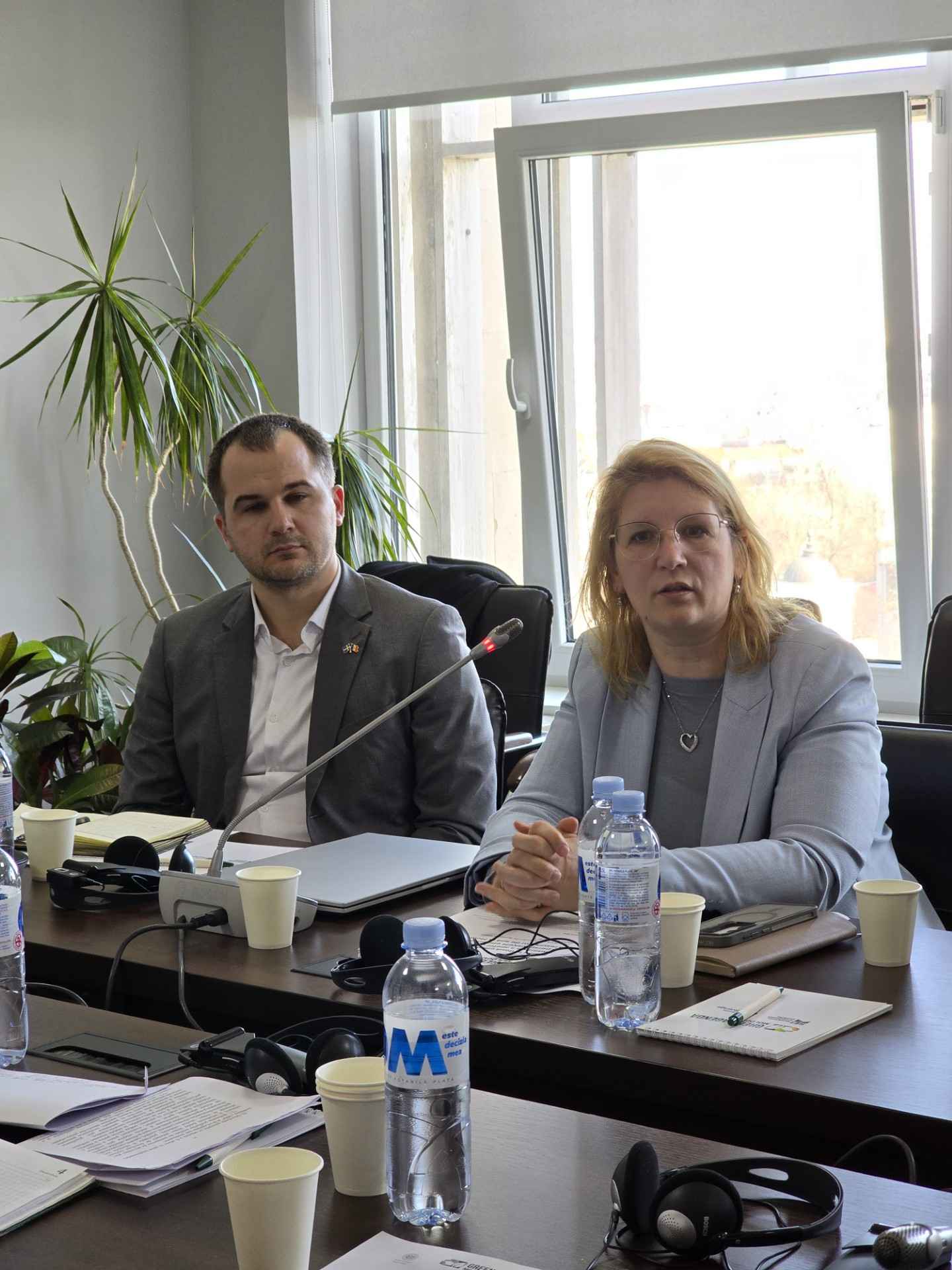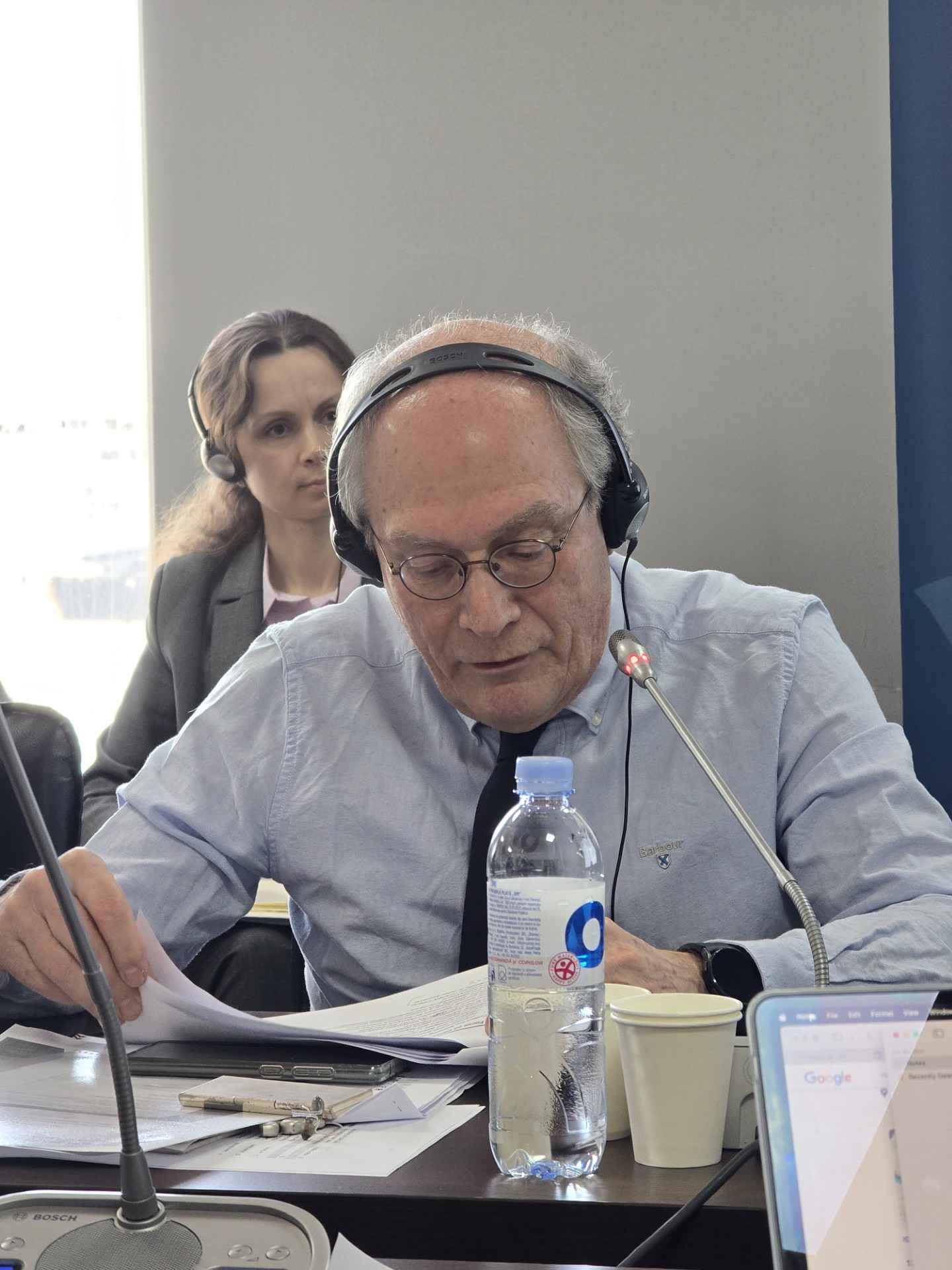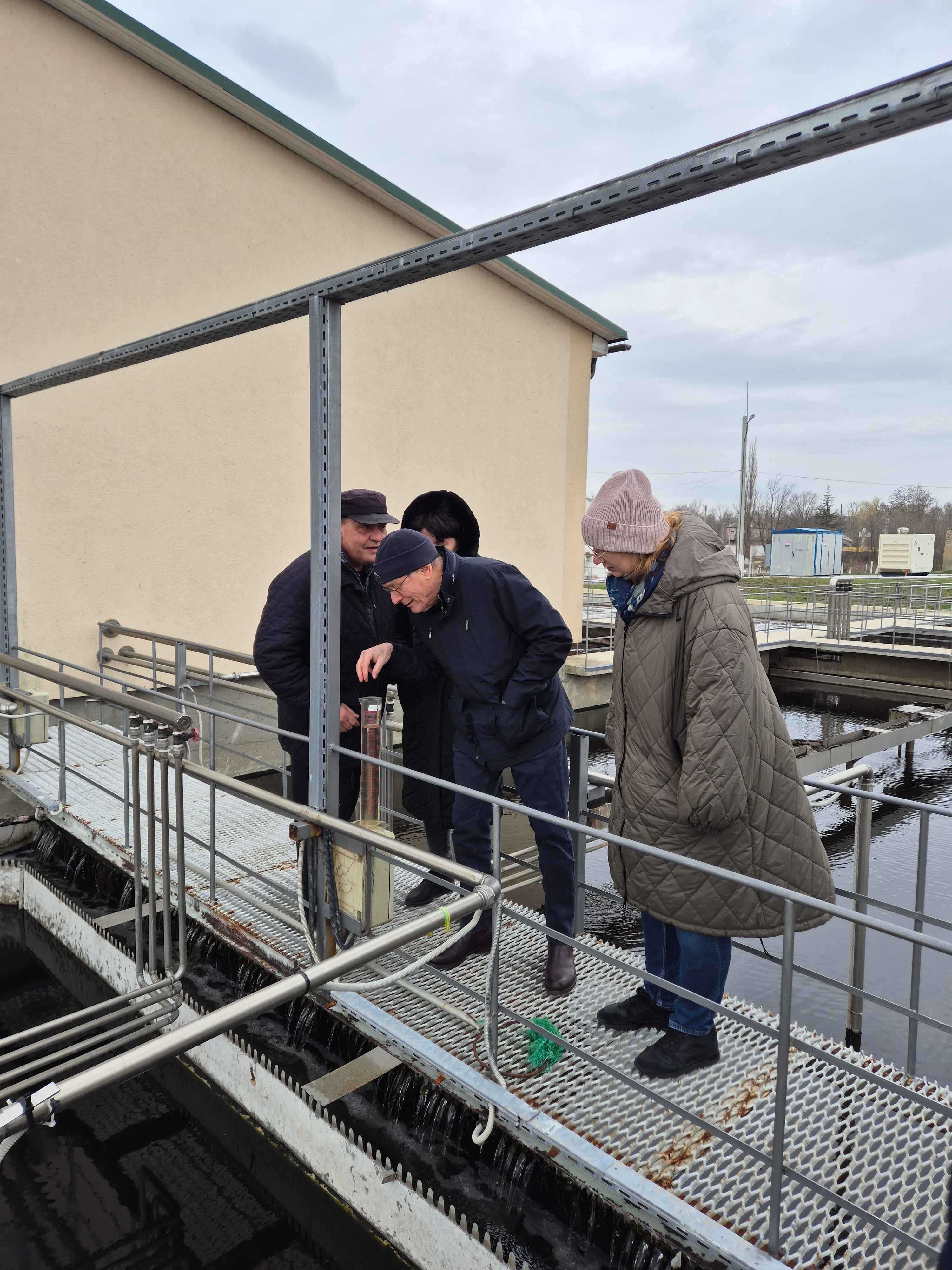Moldova advances study of treated wastewater reuse in agriculture with SEI support
The Stockholm Environment Institute (SEI) Green Agenda for Armenia, Georgia, Moldova and Ukraine project, funded by the Swedish International Development Cooperation Agency (Sida), in collaboration with the Moldova Ministry of Environment, gathered over 30 researchers and government representatives from sectors including environment, agriculture, infrastructure, health and food safety in a workshop on treated wastewater reclamation.
The workshop presented and discussed the key findings and recommendations from the Green Agenda Moldova project Stage 1 report, a rapid scoping assessment conducted from October 2024 to February 2025. The assessment looks at using treated wastewater for irrigation, focusing on standards and infrastructure updates. With Moldova facing more droughts and water shortages, the study discusses how reclaimed treated wastewater could provide a stable supplemental irrigation source for the country while offering economic and environmental benefits. The research aims to support Moldova’s EU accession process by providing technical assistance on assessing the feasibility of reusing treated wastewater for agricultural irrigation, in accordance with Regulation (EU) 2020/741 of the European Parliament and of the Council on minimum requirements for treated wastewater reuse.
Victoria Gratii, Chief of the Policy Direction for Integrated Management of Water Resources at the Moldova Ministry of Environment, commented in the workshop, highlighting that the study on treated wastewater reuse in agriculture provides a strong basis for assessing Moldova’s capacity to implement the requirements of Regulation (EU) 2020/741. “These data shall conclude the feasibility of this solution, considering existing infrastructure, agricultural demand, and climate impact. With the country’s increased vulnerability to drought, the reuse of treated wastewater can enhance water security and reduce reliance on traditional sources. Beyond environmental benefits, a detailed cost-benefit analysis will support the identification of the most effective implementation strategies, ensuring alignment with European standards,” she added.
Igor Afteniuc, Programme Officer at the Embassy of Sweden in Moldova, emphasized Sweden’s priorities, stating, “One of the key priorities promoted by Sweden in its cooperation with Moldova is the sustainable management and responsible use of natural resources within the country. Given Moldova’s limited water resources and the increasing severity of climate change, this study aligns perfectly with Swedish priorities. It will provide a comprehensive list of opportunities for governmental institutions and the business sector, particularly in agriculture, to utilize wastewater effectively in accordance with EU regulations.”
The event also marked the initiation of Stage 2 of the project, which consists of pilot studies assessing the implementation of reclaimed treated wastewater in Moldova. Following the workshop, the team of experts visited the wastewater treatment facility in Causeni, one of three facilities chosen for a detailed technical and economic evaluation. The visit documented the primary and secondary treatment processes, existing laboratory protocols of chemical and biological parameters, and assessed effluent volumes and seasonal modifications. If consistent with standards set in national minimum requirements and responding to Regulation (EU) 2020/741 parameters, the reclaimed water, rich in essential nutrients, can reduce the need for chemical fertilizers, enhance soil health, and boost crop yields, benefiting drought-vulnerable vineyards, orchards and berry plantations.
Tatiana Echim, the National Coordinator for the Green Agenda project in Moldova, highlighted the potential long-term advantages of treated wastewater for both farmers and the environment. “By reducing dependence on freshwater sources, it helps alleviate pressure on natural resources. Farmers can also lower irrigation costs by using treated wastewater as an alternative to conventional water sources,” she said.
With 74% of Moldova’s land dedicated to agriculture, water availability for irrigation is a growing concern, especially in drought-prone southern regions. This pressure is compounded by seasonal fluctuations and long-term reductions in surface water affecting the Dniester and Prut rivers, the country’s primary water sources. Exploring treated wastewater for irrigation is a promising sustainable alternative, providing a reliable water source during dry periods and boosting agricultural productivity.
The study’s next phase will conduct detailed feasibility assessments of at least three wastewater treatment facilities, analyzing technologies, infrastructure, costs, irrigation potential, and water quality. Efforts will also focus on developing regulatory measures that support safe treated wastewater reuse in agriculture. Additionally, the pilot projects will assess irrigation strategies for various crops and soil conditions, paving the way for sustainable water management solutions in Moldova.
For further insights on Moldova’s green initiatives, visit Green Agenda Moldova.
The rapid scoping assessment was conducted in collaboration with a national team of researchers: Tatiana David and Leonid Popov, from the National Institute of Applied Research in Agriculture and Veterinary Medicine; Alexandru Visnevschi, from the Institute of Chemistry, State University of Moldova; and Mihail Gorincioi, National Legal Expert.



_4_11zon.jpg)
